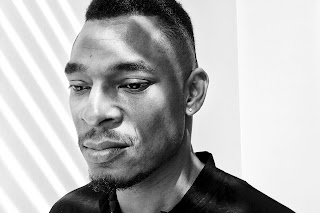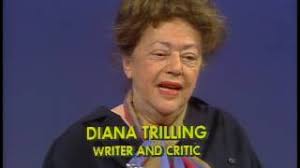38. Terrance Hayes
“The future Etheridge Knight biographer will simultaneously write an autobiography.” -Terrance Hayes
Terrance
Hayes is, as he continuously reminds us, no biographer. In fact, by his own account,
he is singularly unsuited to the task of sketching out a coherent life of
another person. Among the biographizing skills he lacks: a sense of narrative,
strong interviewing skills, the need to be exhaustive, and a preference for research
over imagination. “I’m not a journalist,” he concludes towards the end of his non-biography
of Etheridge Knight, To Float in the Space Between, “I’m a poet. I’m not
good at asking questions; I’m good at making things up."
Etheridge
Knight, too, was a poet, albeit one who received scant recognition during his
lifetime and not much more after. Publishing his first book from prison in
1968, he came out with three more volumes before his death in 1991. Through it
all, he remained an elusive figure, a man of varying personas who was tricky to
pin down. By turns the bohemian, the prison poet, the bluesman, the Southerner,
the soldier, the intellectual, the junkie, Knight was a man aware of his audience, always
playing to the crowd, shifting identities as needed. Despite this appealing slipperiness, which would seem to invite the attentions of the potential scholar or
biographer, though, critical commentary on Knight has been limited—a special
issue of Callaloo devoted to him in 1996, a 2012 study by Michal S.
Collins called Understanding Etheridge Knight, and not a whole lot else.
At least
until 2018. Hayes’s To Float in the Space Between, published that year, consists
of a series of essays (along with pen-and-ink drawings) most of which originated as
lectures and previously appeared elsewhere. Taking Knight’s elusive essence as
an organizing principle, the essays aim to be “as speculative, motley, and
adrift” as the poet himself. Knight looms large over the poetic career of
Hayes, ever since the younger man read Knight’s poem “The Idea of Ancestry” as
a college undergrad, and in the years since, Knight’s influence has found its way into
Hayes’ work in various ways. According to Hayes, his direct inheritance from
Knight includes shaping such aspects of his work as perspective, voice, and
form, and, it would seem in reading To Float, that inheritance extends
to larger issues of identity as well. As such, the question of influence serves
as both a starting point for the book and one of its chief concerns. “Influence
is never distant,” Hayes writes, “or influence is always distant. This text is
about influence.”
In fact,
the question of influence is a complex one for Hayes (as it was for Etheridge)
as a poet, a Black man, a son. Hayes’ questing takes him intellectually across
a wide swath of terrain, considering such questions as literary community, the
poetics of “liquid”, and what it means to come of age as a poet, but it also
leads to a physical journey as well. He travels to Indianapolis to meet with
Knight’s sister and others who knew him, to Syracuse to get an account of the
poet from his former student, the memoirist Mary Karr, and, in the book’s affective highlight,
to his hometown of Columbia, South Carolina, to meet his own biological father
for the first time.
It’s in this section, towards the
end of the book, that (non-)biography gives way definitively to a species of memoir,
as Hayes trades a consideration of his poetic inheritance for an exploration of
his familial one. And it’s something of a dark one, comprised of alcoholism (his
father’s), possible rape (his mother’s at the hands of his father) and war
death (his grandfather’s). As Hayes meets his biological dad and other new
members of his family, he’s warmly welcomed but keeps himself at something of a
distance, questioning them and trying to imagine his way into the lives of these
blood relatives and their ancestors. This speculation ultimately centers on his
biological grandfather, a career military man who was killed in Vietnam, and the questions
of responsibility, family, and identity raised by his life and death.
“Each time I’ve returned to my work
on Knight,” Hayes writes at the beginning of the book, “only the impossibility
of a biography has remained consistent.” Instead, Hayes offers up both what he
hopes will be a starting point for future biographers more suited to the task
than he is and ample heapings of his own autobiography. And, in fact, as Hayes
notes, any prospective biographer will inevitably, if perhaps to a lesser
degree than Hayes, be writing his own life as much as Etheridge’s. “The
storyteller always tells his own story,” Hayes writes, whether that’s a journey
to the writer’s hometown to meet his biological family or it describes whatever personal event
might draw a prospective biographer to the tangled narrative of Knight. Any
writer who chooses to tell the story of this forgotten, unpinnable poet will have
their reasons. And as they always do, those reasons can’t help but seep into
the text.



Comments
Post a Comment